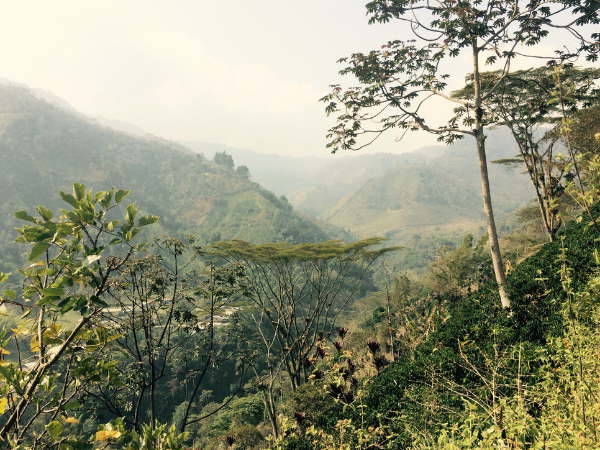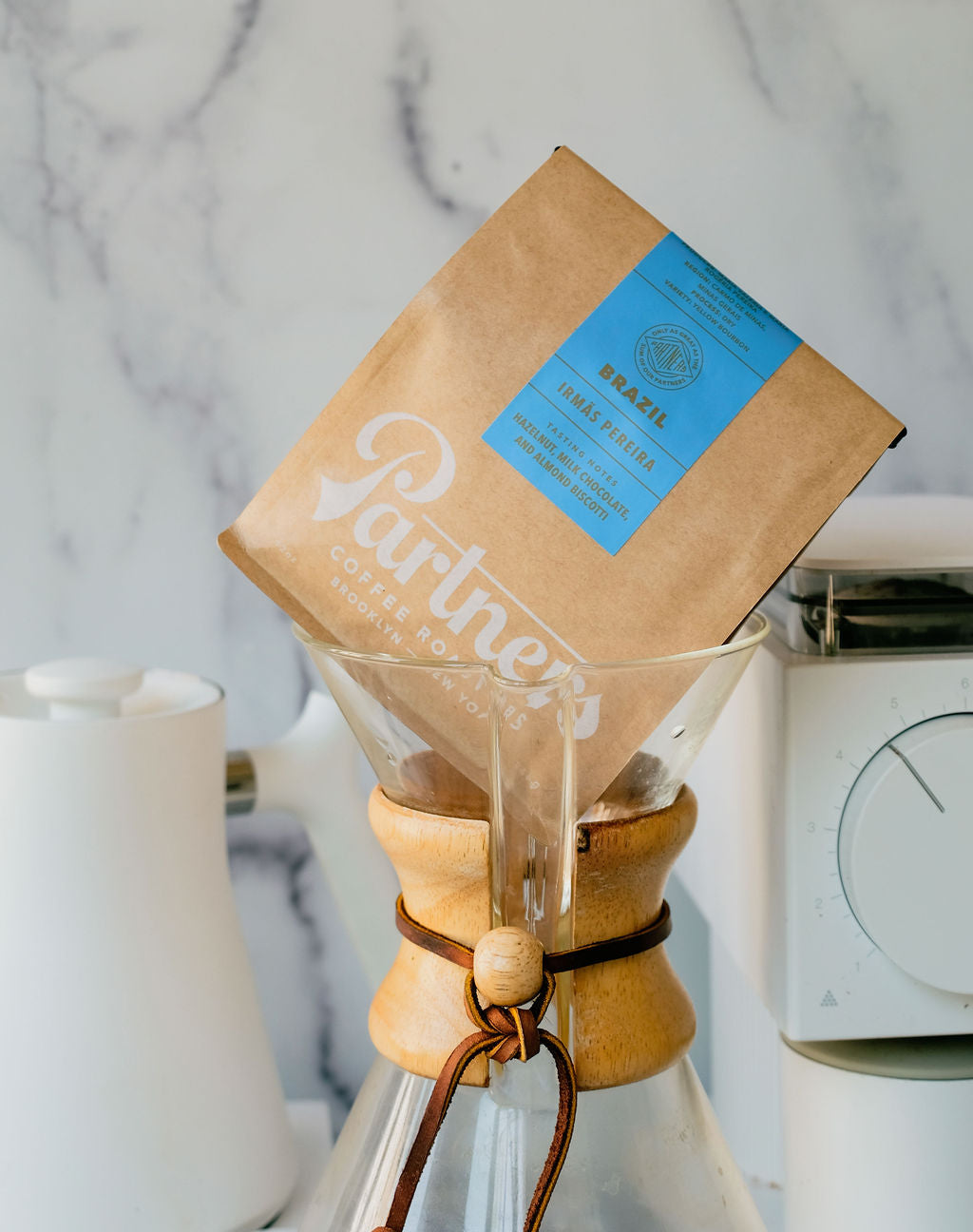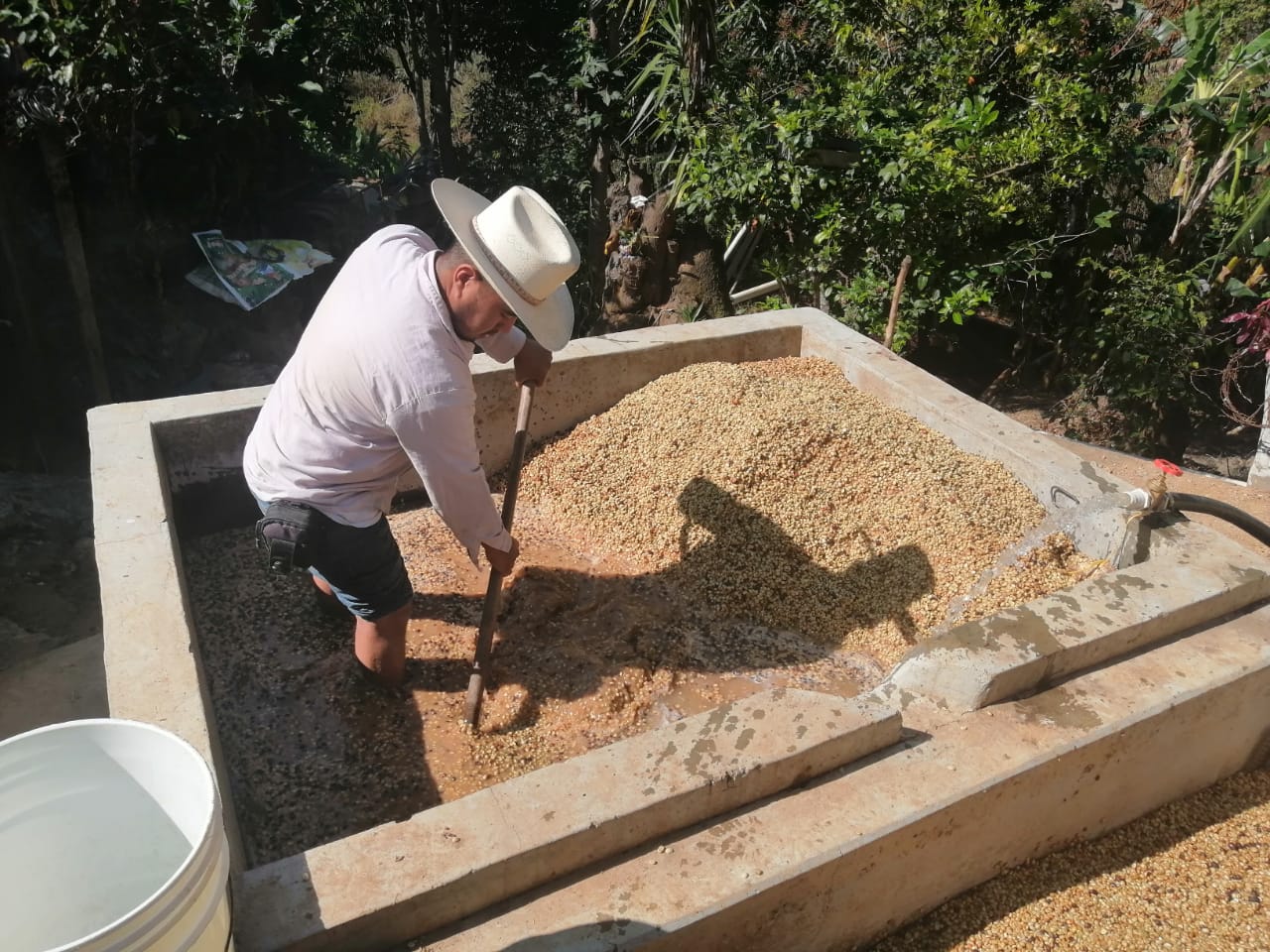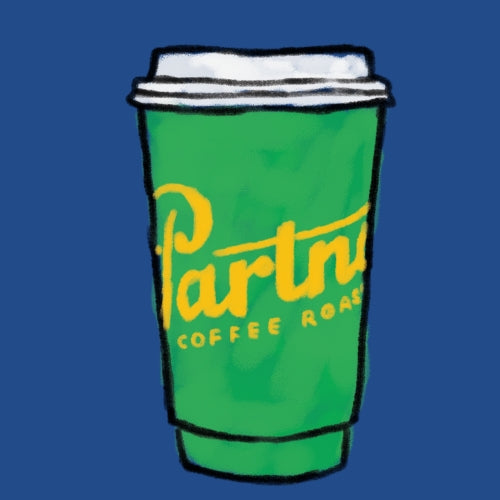A staple offering at our flagship cafe in Williamsburg, Brooklyn, Bedford contains coffees from some of our favorite relationships in Colombia and Ethiopia.
Key Partners
San Antonio Smallholders—San Antonio, Cauca, ColombiaCauca department in southwestern Colombia is home to some very high elevation farms, often exceeding 2,000 meters. Most of the coffee here is grown by small producers, processed using hand-cranked pulpers, then fermented, washed, and dried on the farm.
To build a lot like San Antonio, dozens of individual producers’ coffees are tasted separately, selected according to quality and flavor profile, and homogenized to meet the quantity we need. In the process we’ll also identify our very favorite lots, which are then kept separate for our single origin program. Much of this important work is done by or in collaboration with Pergamino, our longtime export partners in Medellín.
Sourcing for Bedford has introduced us to many wonderful farmers in the community of San Antonio, including many members of the extended Pillimué and Oidor families. Husband and wife Antonio Pillimué and Maria Rosa Oidor operate their own farms as well as a general store, where neighbors can purchase agricultural supplies and household wares. They are key members of the growers’ association ASORCAFE based in the nearby town of Inzá, operating a local collection point where other farmers can deliver their pickings.
Every year we’re impressed with the sweet, bright citrus and caramel flavors found in coffees from this region.
Suke Quto—Guji, Oromia, Ethiopia
Suke Quto refers to both the farm and washing station operated by Tesfaye Bekele in Ethiopia’s Guji zone. After a brushfire ravaged the area in 2016, Tesfaye observed his neighbors planting what had previously been forest with crops like corn and teff. With a passion for conservation and a background in agroforestry, he turned his focus to coffee—a plant that was less commonly cultivated in Guji, but native to Ethiopia’s forests.
Tesfaye’s farm functions to educate neighbors about coffee cultivation best practices. His washing station processes coffee for about 200 neighboring producers and maintains a plant nursery that distributes seedlings of Kurume and Wolisho varieties—which Tesfaye discovered will produce better quality when harvested together than harvested and tasted individually.
Suke Quto has become the standard of excellence in Guji, which has quickly become a celebrated coffee region. Our longest continuous farm relationship, we love Suke Quto’s coffee for its syrupy body and juicy, stone-fruit character.








Leave a comment
This site is protected by hCaptcha and the hCaptcha Privacy Policy and Terms of Service apply.